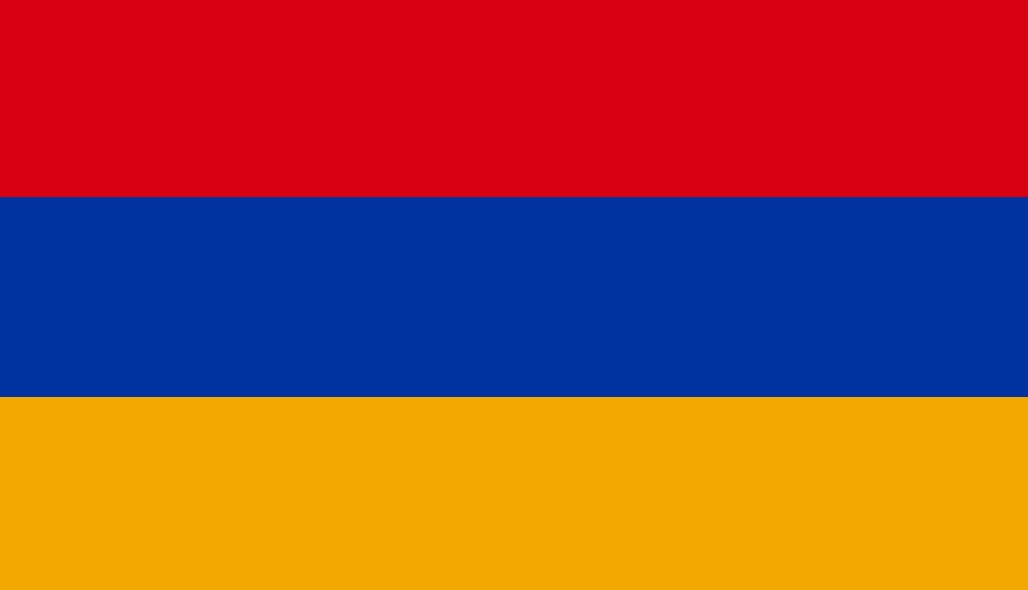|

Learn how to speak Armenian

The Armenian language occupies
an independent branch of the Indo-European language tree. It
is the official language of the Republic of Armenia and the
Republic of Artsakh. It has historically been spoken
throughout the Armenian Highlands and today is widely spoken
in the Armenian diaspora. Armenian is written using the
Armenian alphabet, introduced in 405 AD by Mesrop Mashtots.
Armenian has developed since the separation from
Indo-European mother tongue in the third millennium BCE to
at least the time of the first Armenian dynasty (the
Yervanduni dynasty, founded in the 6th century BCE).
Hellenistic influences during the Artashesian Dynasty (2nd
century BCE to 1st century CE) led to word borrowings from
Greek and Latin. As the state language of the Arshakuni
dynasty of Armenia (1st to 5th century CE) was Parthian, a
large portion of Armenian vocabulary has been formed from
Parthian borrowings. The earliest extant form of written
Armenian is from the 5th century and is known as Classical
Armenian (5th to 11th century); translations of the Bible
and other religious texts during this period led to
extensive word borrowings from Hebrew and Syriac. Middle
Armenian (12th to 15th century) began with the establishment
of the Armenian Kingdom of Cilicia in the 12th century and
is marked by an increased influence of European languages on
Armenian, particularly Old French (which had become the
secondary language of the Cilician nobility) and Italian
(which had become the secondary language of Cilician
commerce). Middle Armenian is the first written form of
Armenian to display Western-type voicing qualities. Early
Modern Armenian (16th to 18th centuries) is a mix of Middle
Armenian and an evolving, non-standardized literary Modern
Armenian (in Constantinople, Venice, the Ararat plain, and
the Persian Armenian communities, particularly New Julfa).
As Armenian
communities were spread across a large geographic area
during this period, early Modern Armenian was influenced by
the languages of host societies, with loan words being
borrowed from Arabic, Turkish, Persian, Georgian, Latin,
Greek, Italian, French, German, Polish, Hungarian, and
Russian.
This foreign
language course was developed by groups commissioned by the
government. It is meant to be used as a crash course in
a foreign language for basic conversational ability by a
foreign traveler or diplomat. It is an introductory
course meant for beginners and includes basic conversational
language by native speakers.
This course
consists of a basic introduction to Armenian, with text, and audio files.
The audio course consists of a 30 minute audio section with
about 190 pages of manual. The video course runs about
2 and a half hours, and includes a 69 page manual. Adobe Reader is
required to view the PDF files, while the mp3 audio files files can be
listened to by any audio player on your PC. The video
course is in MP4 format.
Total run
time of course: Approx 3 hours in total length
A must have resource for any foreign traveler!
Notice:
Please note, this disk is only for use in your computer's
drive! It will NOT play in the DVD Player hooked up to
your TV or the CD player in your car!
This is a DVD-ROM disk, so you need a DVD-ROM drive on your PC
to play it.
This disk contains this
foreign language course in MP3 format. This is not for
use in your CD player, it is not for your DVD player, even
if they play MP3 disks. This disk is only formatted to
be opened in your computer. You have to insert this
disk in your PC, click on "My Computer" and click on the
disk to open the files. You can copy the MP3 files to
your PC, and then load them on to any MP3 player of your
choice. Please note: that if you try to
play this disk on anything other than your computer, it
won't work! |








